Welcome to the world of modern construction, where technology plays a major role in shaping the future of the industry. Gone are the days of traditional blueprints and manual labor; today, technology has revolutionized the way we approach construction projects, from the planning phase to the final execution.
With the emergence of advanced construction technology, we are witnessing a massive shift towards more efficient, cost-effective, and sustainable construction practices. In this article, we will explore the impact of technology on modern construction and how it is revolutionizing various aspects of the industry.
Key Takeaways:
- Technology has revolutionized the construction industry, leading to more efficient and cost-effective construction practices.
- Advanced construction technology, such as Building Information Modeling (BIM) and Internet of Things (IoT) devices, is driving the digital transformation of the industry.
Revolutionizing Construction Processes with Innovative Technology
The construction industry is undergoing a transformation with the adoption of innovative technology. Emerging technologies are being used in construction projects to simplify processes, increase efficiency, and improve the quality of the final product.
One of the most significant technologies transforming the construction industry is Building Information Modelling (BIM), which helps architects and engineers to create digital models of buildings. The use of BIM ensures the accuracy of the design and enables the planning of efficient construction processes. It also improves communication among various stakeholders by providing a centralised platform for all project data.
Another technology revolutionising construction processes is the use of drones. Drones equipped with cameras can be used to survey construction sites, track inventory, and monitor worker safety. The use of drones can save both time and costs, and make construction processes safer, reducing the risk of accidents.
3D printing is also making an impact on the construction industry. Concrete 3D printing technology is being used to create complex structures quickly and efficiently. The technology enables architects and engineers to create customised designs, which were previously impossible to build. It also reduces the costs and time associated with construction processes.
Robotics is another emerging technology being used in construction projects. Automated robots can perform tasks such as bricklaying, welding, and painting, reducing the need for manual labour and improving accuracy. The use of robotics technology increases efficiency and reduces risks associated with manual labour, which can be dangerous in certain cases.
These are just a few examples of emerging technologies that are revolutionising construction processes. As technology continues to evolve, we can expect to see further advancements that will transform the construction industry.
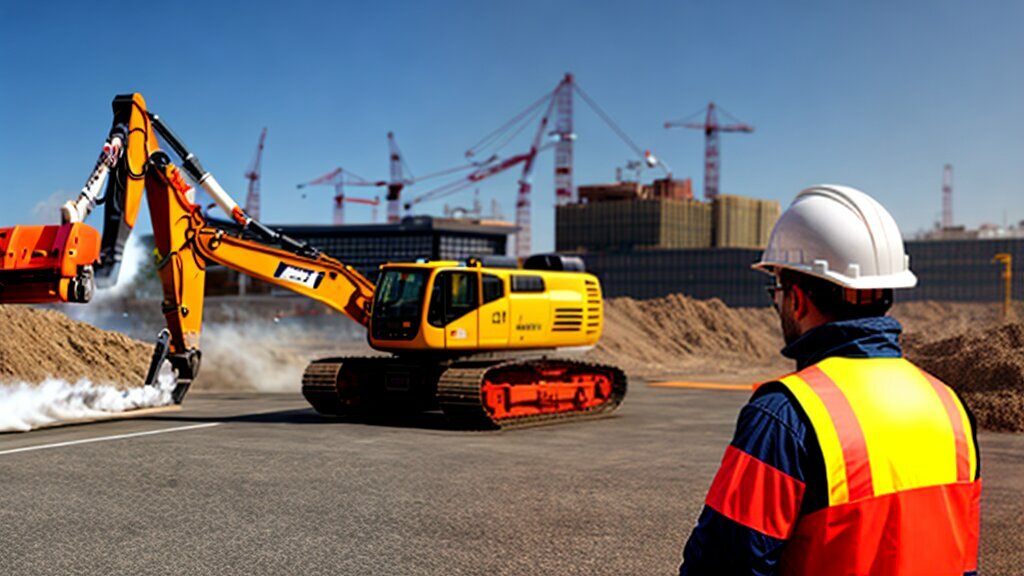
“The use of innovative construction methods and emerging technologies is changing the way construction projects are executed.”
Enhancing Efficiency with Smart Construction Solutions
Smart construction solutions leverage digital technologies to increase efficiency and productivity in construction projects. One example of such technology is Building Information Modeling (BIM), which enables real-time collaboration between architects, engineers, and construction workers through a shared virtual model of the project. This eliminates the need for physical blueprints and reduces errors in design and construction.
Another example is the use of Internet of Things (IoT) devices, which provide real-time data on the progress of construction and enable better decision-making and resource management. For instance, sensors can monitor the usage of construction materials and equipment, and alert workers when supplies run low or when maintenance is needed.
By embracing digital transformation in construction, companies can also achieve cost savings and improve sustainability. For instance, BIM can help reduce material waste and optimize energy use, while IoT devices can help monitor energy consumption and track the carbon footprint of construction activities.
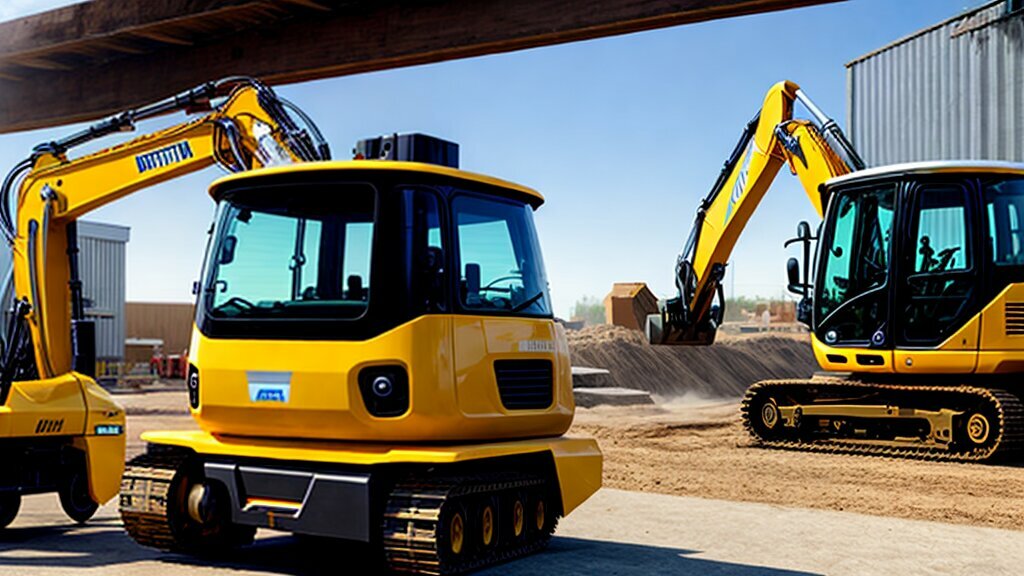
“Smart construction solutions are essential for the industry to keep up with the demands of modern construction projects. By embracing technology, we can achieve greater efficiency, reduce costs, and deliver higher-quality projects.”
Advancements in Construction Industry: Harnessing Technology’s Potential
The construction industry is rapidly adopting new technologies to streamline processes and improve efficiency. From drones to 3D printing, emerging technologies are revolutionising traditional construction practices, making them faster, cheaper, and safer than ever before.
“Technology has completely transformed the way we approach construction projects,” says Thomas, a construction manager at a leading UK construction company.
One game-changing technology in the construction industry is robotics. A recent report by Global Market Insights predicts that the robotics market in construction will reach $470 million by 2026. Robots are being used for various tasks on construction sites, including bricklaying, welding, and concrete pouring. Compared to human workers, robots can work around the clock without getting tired, reducing the time required for construction projects.
| Advantages of Robotics in Construction |
Disadvantages of Robotics in Construction |
| Increased efficiency and speed |
High cost of investment |
| Reduced labour costs |
Limited dexterity and flexibility |
| Precision and accuracy |
Requires technical expertise to operate and maintain |
Another technology that is transforming the construction industry is 3D printing. Experts predict that 3D printing will become a staple in the construction industry over the next decade. 3D printing enables the construction of complex structures that would be difficult or impossible to build using traditional methods. It is also faster, more cost-effective, and requires fewer resources.
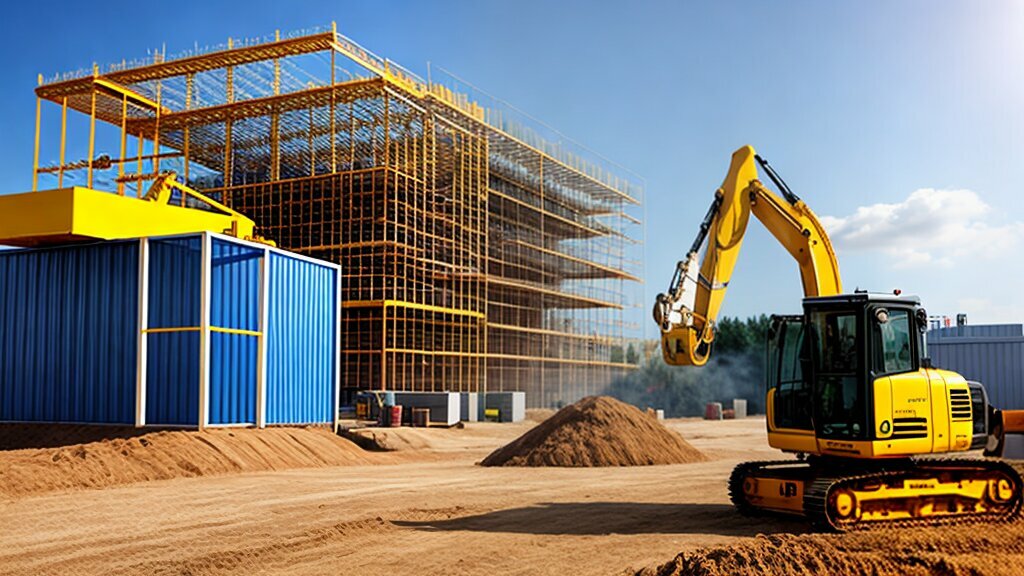
“3D printing has completely changed the way we design and build structures,” says Jane, a 3D printing expert at a leading construction technology company.
Aside from robotics and 3D printing, other technologies such as drones and augmented reality are also being used in the construction industry. Drones are used for surveying and mapping construction sites, while augmented reality is used for design and project management.
The construction industry is constantly evolving, and advancements in technology will continue to play a major role in shaping its future. As technology continues to advance, it is essential that construction companies invest in upskilling their workforce to adapt to these changes and embrace the possibilities that technology can offer.
Overcoming Challenges and Embracing Future Possibilities
While technology has brought about significant positive changes in the construction industry, it has also presented its own set of challenges that must be overcome. One of the main challenges is the need to upskill the workforce to adapt to technological advancements in the industry.
Construction workers must be trained to use complex tools and software to take advantage of the many benefits offered by technology. This requires a significant investment in training programs and resources to ensure that the workforce is equipped with the necessary skills to meet the evolving needs of the industry.
However, with these challenges come unprecedented opportunities. The advent of artificial intelligence (AI) and virtual reality (VR) has opened up a world of possibilities for construction technology. AI-powered robots, for example, can assist in tasks such as site inspections, while VR technology can provide virtual tours of construction sites, allowing for better visualization of the final product.
Other exciting possibilities include the use of 5G technology to enable real-time collaboration and the development of autonomous construction sites. With these and many more possibilities, the future of construction technology looks bright.
Image description: 3D rendering of a construction site with several cranes and construction workers wearing hard hats.
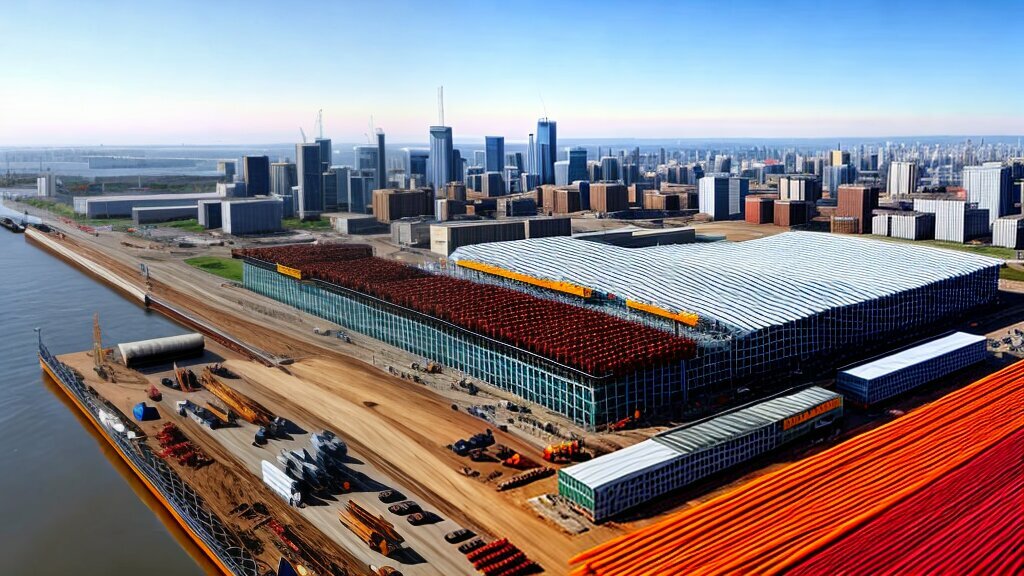
Conclusion
In conclusion, the impact of technology on modern construction is undeniable. From digital blueprints to smart structures, innovative construction methods to smart construction solutions, and cutting-edge technologies to artificial intelligence and virtual reality, the construction industry is continuously evolving.
While embracing technology presents challenges, such as the need for upskilling the workforce, the opportunities and possibilities for construction technology are endless. With the use of digital transformation in construction, the industry can increase efficiency, productivity, and safety while reducing costs and environmental impact.
The advancements in technology-driven construction practices are set to revolutionize the industry further and create better and smarter ways to build. The construction industry must continue to adapt and adopt new technologies to keep up with the fast-paced digital age and continue to build the world we live in.
FAQ
Q: What is the impact of technology on modern construction?
A: Technology has had a significant impact on modern construction by revolutionizing construction processes, enhancing efficiency with smart construction solutions, driving advancements in the construction industry, and presenting both challenges and opportunities for the future.
Q: How is technology revolutionizing construction processes?
A: Technology is revolutionizing construction processes through innovative construction methods and emerging technologies that are changing the way construction projects are executed. These advancements in technology are improving efficiency, productivity, and safety in the construction industry.
Q: What are smart construction solutions?
A: Smart construction solutions refer to the use of digital technologies, such as Building Information Modeling (BIM) and Internet of Things (IoT) devices, to enhance efficiency and productivity in construction projects. These solutions contribute to the digital transformation of the construction industry.
Q: How is technology driving advancements in the construction industry?
A: Technology is driving advancements in the construction industry through the use of drones, robotics, 3D printing, and other cutting-edge technologies. These technologies are transforming traditional construction practices and enabling more efficient and sustainable construction processes.
Q: What challenges and possibilities does technology present in modern construction?
A: Technology presents challenges in terms of upskilling the workforce to adapt to technological advancements. However, it also presents exciting possibilities for the future of construction technology, such as artificial intelligence and virtual reality, which have the potential to further revolutionize the industry.












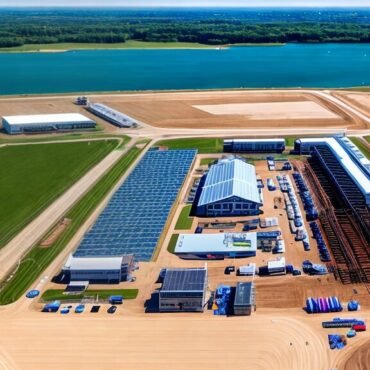









Post comments (0)